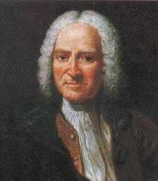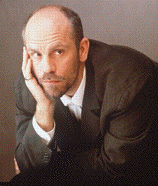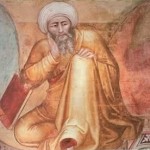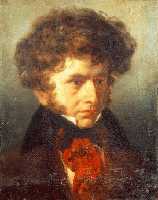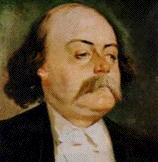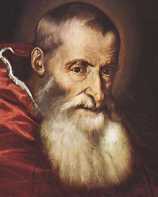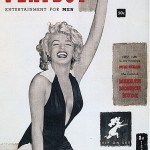This Week in Freethought History (December 8-14)
Here’s your week in Freethought History. This is more than just a calendar of events or mini-biographies – it’s a reminder that, no matter how isolated and alone we may feel at times, we as freethinkers are neither unique nor alone in the world.
Last Sunday, December 8, but in 1732, Paul-Henri Thiry, Baron d’Holbach, was baptized. A German by birth, he was reared in France and, after his farther and uncle died, inherited a large fortune and the Baron’s title. He attended the University of Leyden from 1744 to about 1749 and about this time cast off his religion. He was quite popular among the skeptical intellectual elite for his exquisite parties. His guests were a Who’s Who of the intellectual West: the Encyclopedist Denis Diderot, the mathematician Jean Le Rond d’Alembert, the historian Edward Gibbon, the writer Horace Walpole, the chemist Joseph Priestley, the social critic Cesare Beccaria, the statesman and scientist Benjamin Franklin, the actor David Garrick, the philosophers Claude-Adrien Helvétius and David Hume, the naturalist Buffon, the economist Adam Smith, the novelist Lawrence Stern, and Jean-Jacques Rousseau. Holbach wrote, under a pseudonym, the first openly atheistic work in modern history, System of Nature, 1770. It was Baron D’Holbach who said, “If the ignorance of nature gave birth to gods, the knowledge of nature is calculated to destroy them.”
Last Monday, December 9, but in 1953, American actor John Malkovich was born. Making something of a name for himself as the crazy-yet-knowing character “Marvin” in Red (2010) and Red 2 (2013), Malkovich has come a long way from his first Obie award at age 30, to starring with Dustin Hoffman in a 1984 Broadway revival of Death of a Salesman, to an Oscar nomination for playing a blind man in the film Places in the Heart (1984), to an unusual leading man in Dangerous Liaisons (1988), to a would-be presidential assassin in 1993’s In the Line of Fire – for which he copped another Oscar nomination. He has the distinction of being possibly the only living actor to star in a film with his name also in the title, Being John Malkovich (1999). In 2000, Malkovich was in Chicago to direct the play “Hysteria” at Steppenwolf Theater, which he co-founded with actor and friend Gary Sinise. Malkovich was asked his thoughts on Freud, the subject of the play:
I think he was fantastic, a fantastic man. … I also particularly like him because he was an atheist, and I grew tired of religion some time not long after birth. I believe in people, I believe in humans, I believe in a car, but I don’t believe something I can have absolutely no evidence of for millenniums. And it’s funny — people think analysis or psychiatry is mad, and they go to church…
Last Tuesday, December 10, but in 1198, the Spanish Arab-Muslim scholar and philosopher known in the West as Averroës, died in the Andalusian part of what is now Córdoba, Spain. He was born on an unknown date in 1126 in Córdoba, the grandson of the chief judge of Cordoba, of a family that valued education and public service. As was the custom of the time, before Islam became an anti-intellectual religion, people of superior education and achievement became political leaders. Averroës’ school of philosophy, known to medieval Europe as Averroism, strongly influenced Jewish philosophers such as Maimonides (1135-1204). That Catholic oracle Thomas Aquinas (1225-1274) gave Averroës high marks for philosophical scholarship; Dante (Divine Comedy) hailed him as one of the great philosophers of his age. Averroism remained the dominant school of thought in Europe into the 16th century, especially at Paris University. The biography of Averroës in Wikipedia awards him an overgenerous résumé: Averroës never distinguished himself outside of medicine, philosophy, Koranic scholarship and Sharia law – and only the first two fields provided any benefit to his fellow human beings. It is clear that Averroës, in his own beliefs, substituted a vague Pantheism or World-Soul for the impersonal God of Aristotle. He did not believe in personal immortality.
Last Wednesday, December 11, but in 1803, French Romantic composer Louis Hector Berlioz was born. Berlioz never studied piano, but entered the Paris Conservatoire anyway. He won the Prix de Rome on the fourth try, with its accompanying pension, in 1830. Berlioz was particularly influenced by the composers Beethoven, Gluck and Weber, but also by Shakespeare and the skeptical literature of Byron and Goethe. His liturgical compositions, such as the Te Deum, the Grande Messe des Morts, and L’enfance du Christ, are evidence enough for the Catholic Encyclopedia to pronounce Berlioz one of the faithful. Not only was Berlioz a complete Agnostic – according to his friends, his letters, and his biographer – but his choice of material included just as many secular as sacred works. So one might recall the wholly secular and equally inspired music of his Symphonie fantastique, his Roman Carnival and his operas Les Troyens (a pagan-era epic) and Béatrice et Bénédict (based on Shakespeare). Far from experiencing a spiritual epiphany and reconciliation to the dying off of his close friends as his own end drew near, Berlioz maintained his disbelief in God and immortality. In one of his last letters, written shortly before his death in Paris at age 67, Berlioz wrote his creed: “I believe nothing.”
Last Thursday, December 12, but in 1821, the French novelist of the Realist school, who lived with his mother until he was 50, Gustave Flaubert was born. Flaubert, a meticulous writer, wrote only five novels. But he received world-wide recognition when Madame Bovary appeared in 1857. Or perhaps it was notoriety that won him recognition: Flaubert was tried but acquitted on charges of immorality for the same novel. His anti-clerical feelings, not to say Atheism, suffuses all of Flaubert’s novels, but is especially apparent in his 1874 Temptation of St. Anthony, inspired by the Hieronymus Bosch painting. Flaubert’s letters also provide a window on his skepticism. It was Gustave Flaubert who said, “It is necessary to sleep upon the pillow of doubt.”
Yesterday, December 13, but in 1545, the Council of Trent met in the Italian border town of Trento. The Council was urged on a reluctant Pope to clean up the sewer of corruption and vice that had been the Roman Catholic Church for the preceding two centuries, and even the Catholic Encyclopedia admits some of this. What is seldom admitted is that the Church was hurting from the loss of income to the Protestant churches, and stipulated a meeting in an Italian town – so that the Inquisition could finish off the heretics. But when the announced date of the Council arrived, the plan of the papacy to suppress the heretics rather than listen to them became so obvious that only 25 prelates showed up. As only 15 more wandered in by the next June (1546), Pope Paul suspended the Council. Paul died in 1549, but the cardinals were so contemptuous of the reformers, and so addicted to luxury and corruption, that they elected Julius III, widely known to practice sodomy and other vices (1550-55). Julius was compelled to resume the Council, but again the meeting had to be suspended. The Council of Trent did not effectively begin until 1562, three Popes later, under Pius IV (1559-65). The legates and delegates managed to avoid reform measures. They concentrated instead on formulating a code to guide the Inquisitors in crushing the political power of the Reformers in a war the Papacy hoped to incite (Rome attempted this in the Thirty Years War). The Council closed at last on 4 December 1563. The Council of Trent is still played up in Church histories as part of the mostly fictitious Counter-Reformation. In fact, nobody outside the Church could detect any reform.
Today, December 14, but in 1417, Sir John Oldcastle, a leader of the Lollard religious sect, was hanged and burned in Britain. He was born in Herefordshire on an unknown date in 1378, matured as a soldier, then adopted the teachings of John Wycliffe (1324-84). It is characteristic of the teaching of European history that it assumes the general populace acquiesced in all the ideas of a church that diverged radically from the organization founded under the original gospels. In fact, the enlightenment at the end of the Dark Age sparked pointed criticism of the Roman Church. Sects arose – Albigensians, Waldensians and others – and because the papacy had armed thugs at its disposal, thanks to the Crusades, differing opinions were bloodily silenced. The Inquisition had no influence in England, but it wasn’t necessary in Oldcastle’s case. His social rank got a 1413 death sentence stayed while he was imprisoned in the Tower of London. But he escaped, took part in a failed kidnapping plot against the king, escaped again, and evaded capture until November 1417. Parliament demanded his life, so on December 14, Sir John Oldcastle was executed in London by hanging over a slow fire.
Other birthdays and events this week—
December 8: Norwegian poet, novelist, and dramatist Björnstjerne Björnson was born (1832).
December 8: Pope Pius IX promulgated, in the bull Ineffabilis Deus, the doctrine of the Immaculate Conception (1854).
December 8: Mexican Socialist and muralist painter Diego Rivera was born (1886).
December 9: Russian geographer and anarchist Peter Alexeyevich Kropotkin (Пётр Алексеевич Кропоткин) was born (1842).
December 9: British rebel publisher and Freethought fighter Richard Carlile was born (1790).
December 9: The second greatest English poet, known for his 1667 epic poem Paradise Lost, John Milton, was born (1608).
December 10: The first issue of Playboy magazine was published, undated, by 27-year-old Chicago-born entrepreneur Hugh M. Hefner (1953).December 12: British physiologist, and grandfather of Charles Darwin, Erasmus Darwin was born (1731).
December 13: One of the greatest German poets of the mid 1800s, Heinrich Heine, was born (1797).
December 13: American abolitionist William Lloyd Garrison was born (1805).
December 14: French economist and industrialist Pierre Samuel Dupont was born (1739).
We can look back, but the Golden Age of Freethought is now. You can find full versions of these pages in Freethought history at the links in my blog, FreethoughtAlmanac.com.
